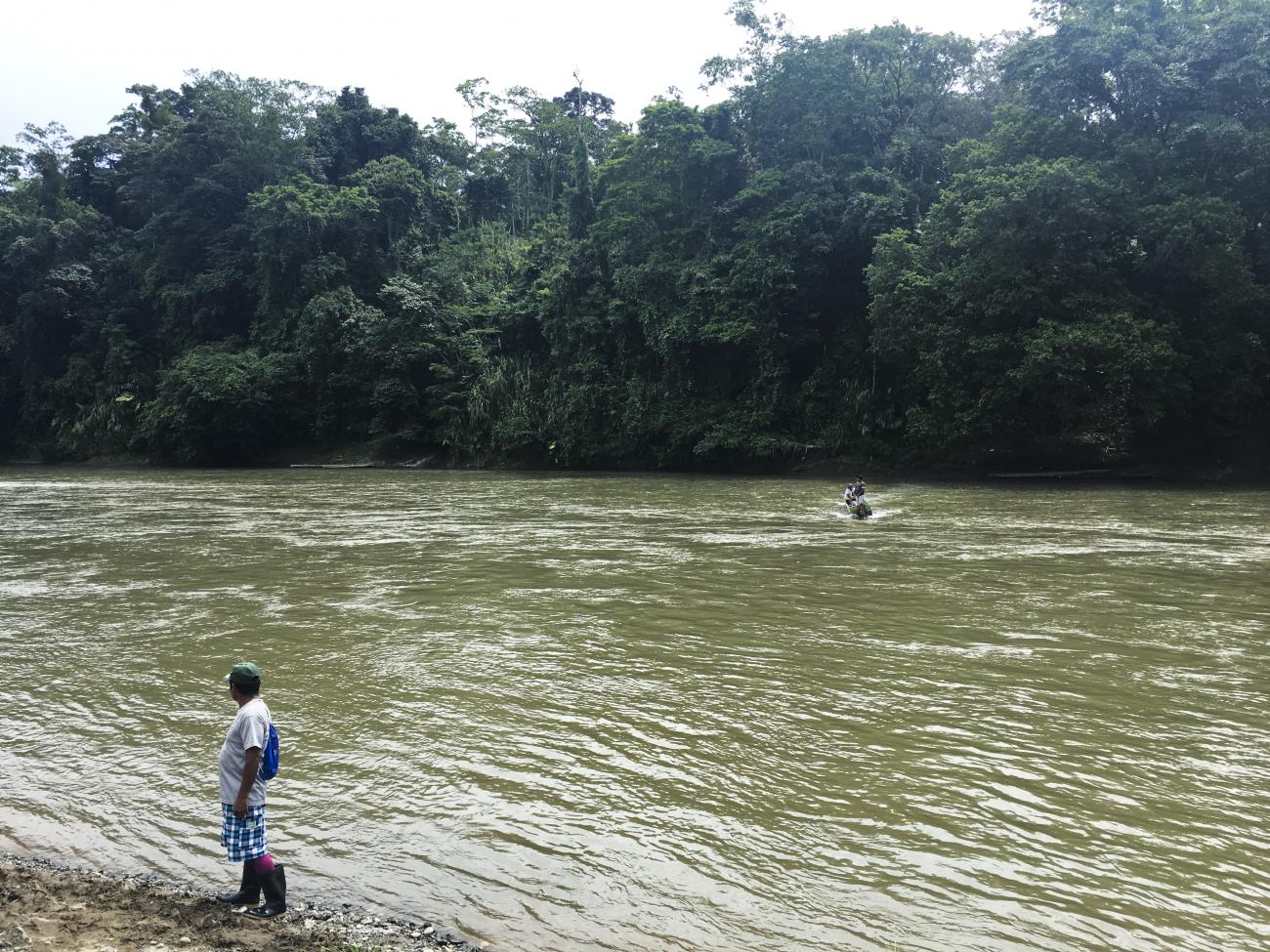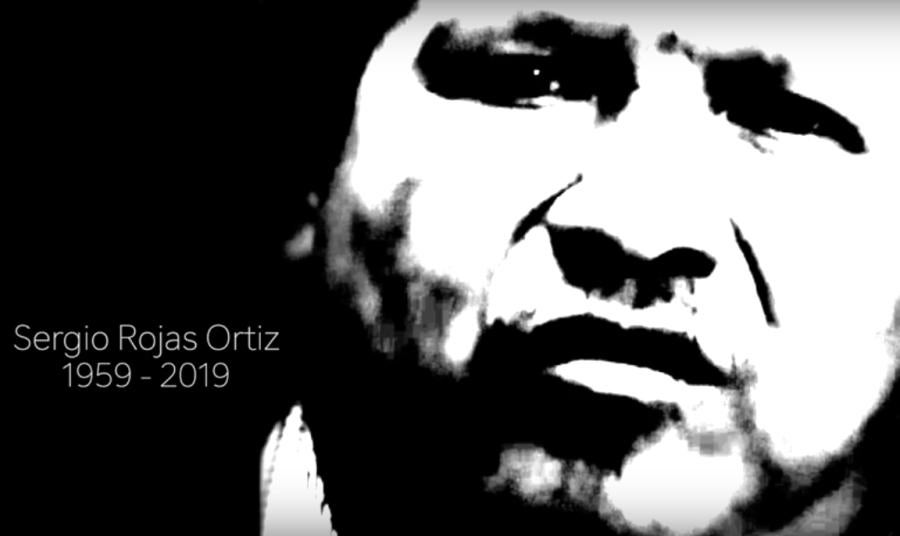
By John McPhaul
In October 2016, a number of Costa Rican Indigenous representatives attended a meeting in the regional hub of Buenos Aires in southern Costa Rica. Called by the government’s Ministry of the Presidency as part of a consultation process, the meeting was an opportunity for Indigenous Peoples to voice their opposition to a giant dam proposed on the Diquis Reservoir that would inundate part of their land.
"There are issues that are non-negotiable, because of our cosmovision and our cultures. So, it will be necessary to tell you [the government] which issues we do not want to negotiate: not today, not tomorrow, not ever," Rafael Rojas said in front of the microphone.
An account of the meeting, which appeared in the leading daily La Nación, described a process as called by the Ministry or the Presidency to eventually visit all the country's 24 Indigenous territories, to develop a consultation protocol with Indigenous communities for any proposed activities on their lands.
The meeting came days before the country’s Supreme Court ordered the dam project stopped until the government could complete a consultation with Indigenous communities. While the October’s consultation was not specific to the reservoir project -- but rather addressed a series of issues including: aqueducts, housing, education, health and telecommunications projects, among others – the dam project came up repeatedly, clearly the foremost issue on the minds of the Indigenous people.
Rojas, a 31-year-old Boricua Indigenous man who was one of about 200 inhabitants of the Indigenous territory of Curré who came to the meeting on October 21, 2016, said the construction of the El Diquís hydroelectric plant in the basin of the Río Grande de Térraba was not negotiable.
The 631 megawatt project, which would provide electricity to 1 million consumers includes the installation of a reservoir that would inundate ten percent of China's Kichá territory (104 hectares) and eight percent of Terraba lands (726 hectares), according to the Costa Rican Ombudsman's Office.
“The man-nature relationship has been historical for us Indigenous Peoples. Therefore, it is painful to refer to a project that will negatively impact the environmental and, of course, our ancestors," Rojas said.
To arrive to the classroom where the meeting with the government was held, men and women of all ages walked between banana plantations and crossed the river by raft.
Some, like Rafael Rojas, spontaneously mentioned the El Diquís hydroelectric project. “What is your opinion on the consultation mechanism?” La Nación asked the neighbors of the Curré territory during the meeting.
"The benefit is that there is a rule. Having the instrument of consultation will be in compliance with the International Labor Organization Convention 169. This system permits the people to measure the importance of the commitment that the government has with Indigenous Peoples," said Daniel Leiva, a Curré community leader.
"What do you want to ask me? Let's talk about Diquis, to be clearer. That package [the mechanism], must include everything that is sacred to Indigenous Peoples, like rivers and forests, is not touched," said Leiva.
Emilsen Cedeño, 63, recalling previous construction attempts to install a hydroelectric plant in the region, said he was thankful that a consultation process is created to hear his opinion. "We have to see what this is going to bring us, good or negative? Hopefully it is good, we always have to be positive,” said Cedeño. "I like it because we know that the government is paying attention to our problems."
"Possibly this opportunity is not going to be repeated ... We have a year and a half to do this well. In 2018, I'm leaving the Presidency and leaving my work team. The only possibility that this consultation mechanism will be respected is that you, Indigenous Peoples, make it your own and force us to comply, " said Ana Gabriel Zúñiga, Deputy Minister of the Presidency. “When the mechanism is implemented, the results of the consultations should be respected,” explained Zúñiga.
Costa Rican Indigenous Peoples are divided into eight distinct groups, numbering around 106,000 mostly in the southern part of the country. With the exception of the Chorotega, located in the northern Pacific part-- related to Mayan civilization in northern Central America -- Costa Rica's Indigenous Peoples are related to the Chibcha civilization centered in Colombia.
"It is assumed, and this is said by the president [Luis Guillermo Solis], that if we are doing a process of this type and at this level, it is because the result of the consultation will be binding," said the official.
Nevertheless, Zúñiga warned that in situations of extreme necessity, in which the common good prevails, the executive branch might decide not to fully accept the result of the consultation. Zúñiga explained that this would happen, for example, if a flood destroys a bridge and in a vote the community resolves not to agree with the proposed reconstruction plan.
After meeting several times with each Indigenous territory, a national meeting is planned. From that event, an executive decree is to be issued, which the government will have to ratify. The protocols for finalizing the consultation in the Indigenous communities were still being negotiated between the Indigenous leaders and the government in March of 2017.
If Indigenous communities so request, the government would even consider drafting a bill, the deputy minister explained.
Meanwhile, in Curré communities there is an increase in interest in information, and neighbors are organizing and speaking about the developments.
Officials and students in the 10th and 11th grades from the Yimba Cájc Indigenous Rural High School in Curré were allowed to attend the meeting with the government.
"There was an impressive reception, a great need to participate. The latent fear is that another administration arrives and does not respect this process. We say to them, ‘that is why you must defend it, that is why we are preparing a decree and are trying to generate a new culture of respect,” said Zúñiga.
--John McPhaul is a Costa Rican-American freelance writer based in San Juan, Puerto Rico. During his many years in Costa Rica, the land of his birth, he wrote for the Miami Herald, Time Magazine and Costa Rica's The Tico Times among other publications.
Photo courtesy of Visit.org/ Flickr.

